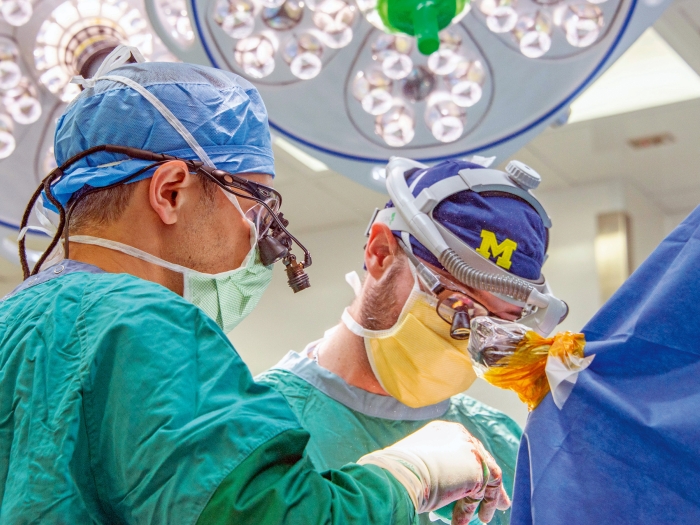Flanary, who practices at EyeHealth Northwest in Portland, Ore., also is an immensely popular comedian who appears as “Dr. Glaucomflecken,” in medical-themed comedy shorts across social media

Ophthalmologist and comedian William E. Flanary, M.D., will deliver the 2024 Medical School Commencement address. The ceremony will be 4-6 p.m. on May 10 in Hill Auditorium.
Flanary, who practices at EyeHealth Northwest in Portland, Ore., also is an immensely popular comedian who appears as “Dr. Glaucomflecken,” in medical-themed comedy shorts across social media.
“There are two things I’ve always wanted to do in life: Be a doctor and tell jokes,” Flanary writes on the Glaucomflecken website.
Flanary got his start in comedy as an 18-year-old performing stand-up in his hometown of Houston, Texas. He was diagnosed with testicular cancer in his third year of medical school at Dartmouth. His experiences as both a patient and a medical student sparked his interest in medical comedy, using humor as a coping mechanism. After successful surgery and completion of medical school, he began an ophthalmology residency program at the University of Iowa. Unfortunately, cancer found him again during residency, and he again turned to comedy — this time, starting an account on X (formerly known as Twitter), as “Dr. Glaucomflecken.”
Following additional successful treatment, Flanary has expanded his comedy repertoire to include short skits incorporating a wide range of characters who worked at a fictional hospital called “Glaucomflecken General.” Dr. Glaucomflecken has amassed more than 3 million followers across his social media channels, collaborated with the U.S. Surgeon General, and has given dozens of keynote speeches worldwide.
“My ‘Dr. Glaucomflecken’ alter ego began as a creative outlet to tell painfully specific ophthalmology jokes and to cope with my own health challenges,” he continues. “Since then, it has evolved to incorporate satire of the U.S. healthcare system, academic publishing, and the interpersonal conflicts that are pervasive in the medical system.”





